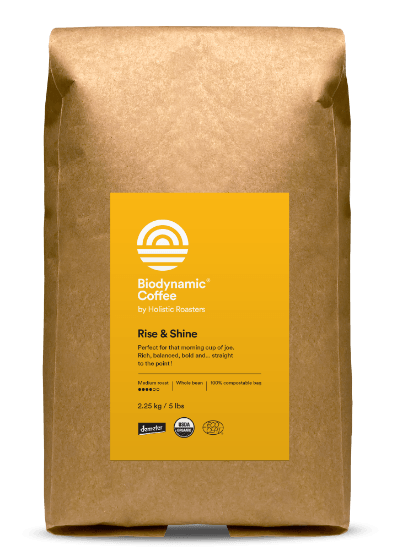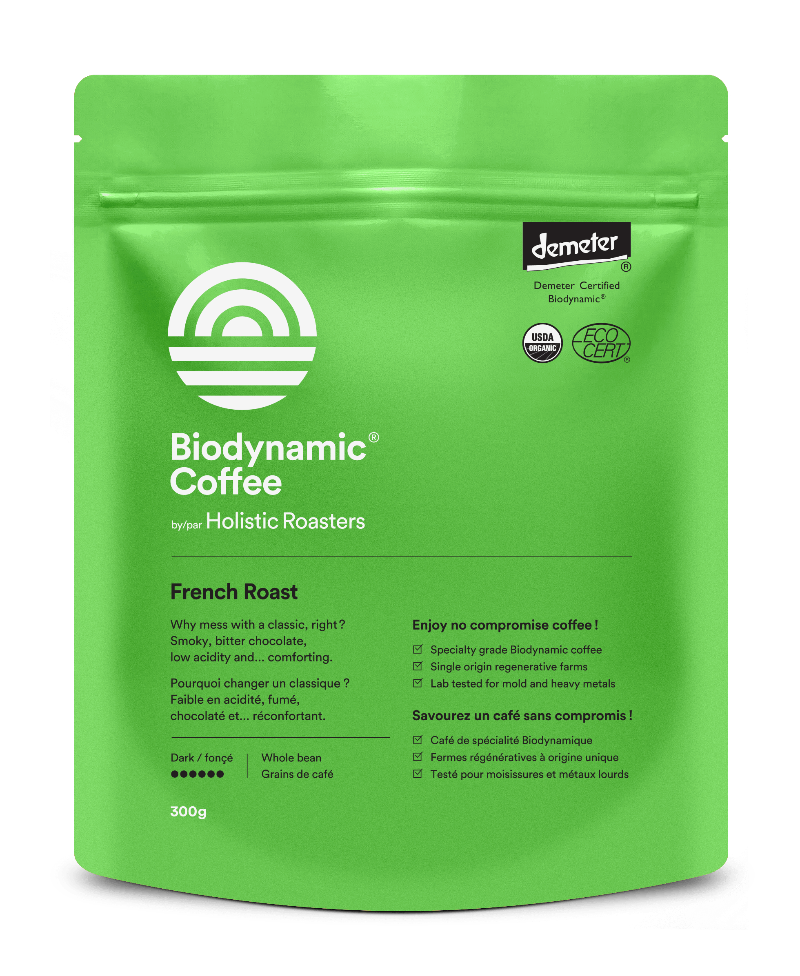Biodynamic: The OG of Regenerative Agriculture
Biodynamic Agriculture: The Original Regenerative Farming
When you think of "regenerative agriculture," you might picture a lush, green farm, buzzing with life, where the soil is rich, the plants are thriving, and everything just feels…right. But did you know that this forward-thinking, eco-friendly approach to farming has roots that stretch way back to the 1920s? That's right—long before the term "regenerative" became a buzzword, there was Biodynamic Agriculture, the original pioneer of holistic farming. It's like the grandparent of regenerative agriculture, full of wisdom and timeless practices that are more relevant today than ever before.

The Quick Scoop
Biodynamic Agriculture is the original organic farming method established in the 1920s, viewing farms as self-sustaining ecosystems where all elements work in harmony. Regenerative agriculture adopted many of these principles decades later. Both approaches focus on soil health, biodiversity, and sustainable practices that heal rather than harm the earth. When you choose coffee from Biodynamic farms, you're supporting practices that have been perfecting sustainability for nearly a century!
What is Biodynamic Agriculture?
Biodynamic Agriculture is the OG—Original Greenie—of farming based, in part, on traditional, ancient farming methods that have been tested through the ages. It was introduced in the 1920s, making it the first official "organic" farming movement.
Biodynamic farming isn't just about avoiding chemicals; it's about creating a self-sustaining ecosystem where every element—soil, plants, animals, and even the cosmos—works in harmony bringing balance and flow to the farm.
Key principles include:
- Treating the farm as a unified, living organism
- Using natural preparations to enhance soil and plant health
- Following lunar and cosmic rhythms for planting and harvesting
- Integrating animals as a vital part of the farm system
Regenerative Agriculture: Following in the Footsteps
Fast forward to today, and regenerative agriculture is the cool new kid on the block. But guess what? It's standing on the shoulders of giants!
Regenerative agriculture shares many principles with Biodynamic farming—like improving soil health, enhancing biodiversity, and working with nature instead of against it. Both approaches see the farm as a living organism, where everything is interconnected.
Regenerative agriculture focuses on:
- Building soil organic matter
- Minimizing soil disturbance
- Keeping soil covered year-round
- Increasing biodiversity
- Integrating livestock when possible
Side-by-Side Comparison
| Feature | Biodynamic Agriculture | Regenerative Agriculture |
|---|---|---|
| Year Started | 1924 | 1980s |
| Foundational Principle | Farm as a unified, self-sustaining organism | Restoration and enhancement of ecosystem services |
| Soil Approach | Specialized biodynamic preparations | Cover crops, composting, minimal tillage |
| Certification | Demeter certification | Various (Regenerative Organic, Land to Market, etc.) |
| Cosmic Connection | Strong emphasis on lunar and cosmic rhythms | Generally not emphasized |
| Carbon Focus | Implicit but not primary focus | Strong emphasis on carbon sequestration |
Impact on Coffee Quality and Sustainability
Coffee grown on Biodynamic and regenerative farms offers unparalleled quality advantages:
Flavor Complexity
Healthier soils grow more complex, nuanced coffees with distinctive terroir characteristics that conventional coffees can't match.
Bean Development
Balanced ecosystems allow coffee cherries to develop more slowly and completely, resulting in denser beans with higher concentrations of sugars and aromatic compounds.
Resilience
Biodynamic and regenerative coffee farms show greater resilience to climate change, ensuring more consistent quality year after year.
The Benefits of Biodynamic and Regenerative Agriculture
Soil Health
Both Biodynamic and regenerative practices focus on building healthy, fertile soil. This isn't just about growing more nutritious crops; it's about sequestering carbon and improving our ecosystems. Healthier soil means healthier food and a healthier planet.
Biodiversity
Biodynamic farms are all about diversity—planting a variety of crops, encouraging wildlife, and even incorporating animals into the farming system. This mirrors the regenerative approach, which also emphasizes the importance of diverse ecosystems. A farm buzzing with life is not only more resilient but also more productive in the long run.
No Nasty Chemicals
Biodynamic farming has been organic since day one—no synthetic pesticides, herbicides, or fertilizers allowed. Regenerative farming also champions organic practices, reducing the toxic load on our food, soil, and water. It's a win-win for you and the Earth.
Closed-Loop Systems
Biodynamic farms strive to be self-sustaining, using composting, crop rotation, and animal integration to create a closed-loop system. Regenerative farms adopt similar practices, reducing waste and making the farm more resilient to external shocks. It's the farming equivalent of living off the grid!
Organic Coffee: A Future-Focused Brew for a Healthier You
Now, let's talk coffee—because who doesn't love a good cup of joe? When you sip on a cup of organic coffee from a farm practicing Biodynamic or regenerative methods, you're not just enjoying a delicious brew. You're also supporting farming practices that are good for the planet. These methods result in coffee that's cleaner, richer in flavor, and grown with love and respect for the environment.
At Biodynamic Coffee, we're proud to continue the legacy of Biodynamic farming, offering you coffee that's not just organic but truly regenerative. So, next time you brew a cup, take a moment to appreciate the OG of regenerative agriculture—Biodynamic farming—and the rich, flavorful coffee it brings to your table.
The flavor complexity that Biodynamic growing methods bring to coffee is unparalleled. The healthy, living soil creates the perfect environment for coffee plants to develop deep, complex flavors that reflect the unique terroir of the farm.
The Bottom Line
Whether you're a die-hard coffee lover or just someone who cares about the planet, Biodynamic and regenerative agriculture offer a taste of the future—a future where farming heals the Earth instead of harming it. And as you enjoy your next cup of organic coffee, remember that you're part of a movement that started almost a century ago, with Biodynamic farming leading the charge. Cheers to that!
By focusing on these timeless farming methods, we can cultivate a healthier, more sustainable future—one cup of organic coffee at a time.
Experience the Difference of Biodynamic Coffee
At Holistic Roasters, we're committed to bringing you coffee that honors the earth and delights your palate. Our Biodynamic coffee is grown using methods that have been perfecting sustainability for nearly a century, resulting in a cleaner, more flavorful cup that you can feel good about drinking.
Shop Biodynamic Coffee





